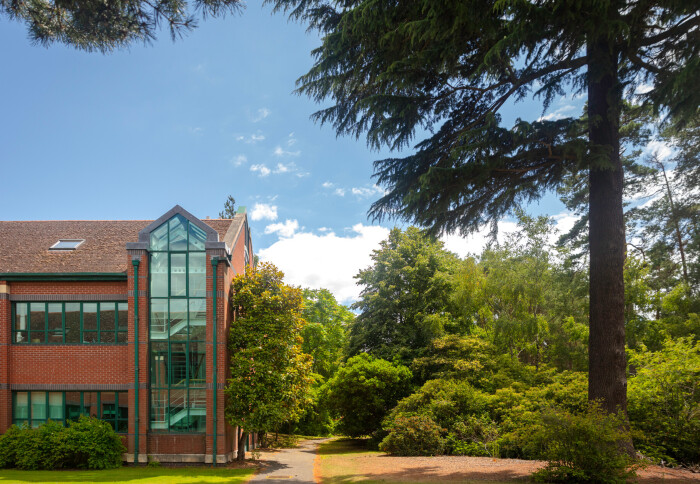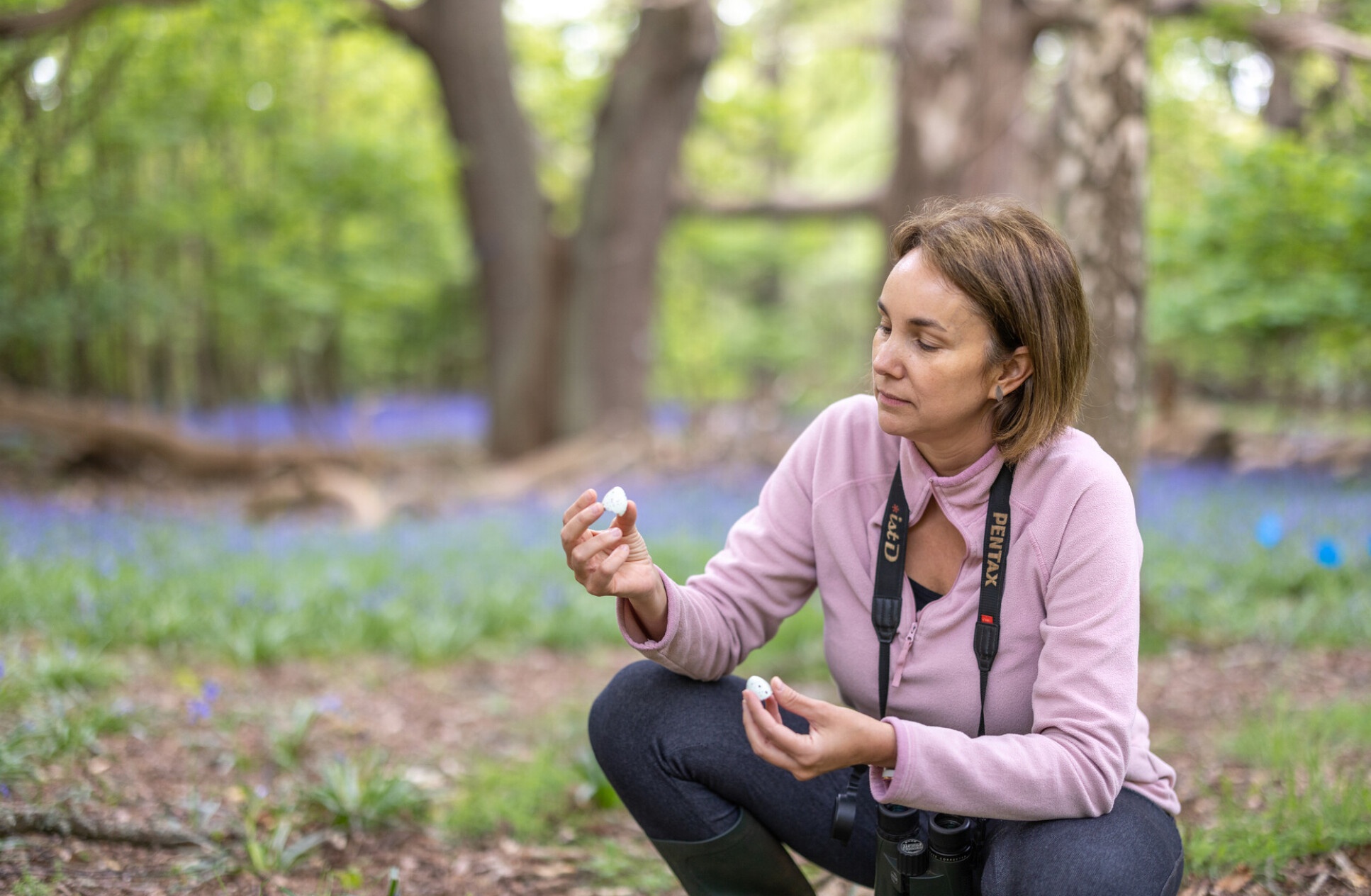Imperial College London and CABI to forge new collaborations at Silwood Park

Imperial College London and CABI will collaborate to solve problems in agriculture and the environment.
Imperial College London’s Silwood Park Campus is to be the new research base for CABI, paving the way for innovative collaborations on key environmental challenges.
CABI is an international not-for-profit organisation that improves people’s lives by providing information and applying scientific expertise to solve problems in agriculture and the environment.

“Given the huge global challenges we face in relation to food security and developing more sustainable farming practices, both in the UK and worldwide, this partnership is particularly timely Professor Richard Craster Dean of the Faculty of Natural Sciences
Imperial College London and CABI have agreed to explore collaborations – spanning both teaching and research – with a focus on fragile ecosystems, sustainable agriculture, key environmental concerns, and how to sensitively manage the world’s biodiversity threatened by climate change.
The agreement will be enhanced by the relocation of CABI’s UK research facilities and staff from Egham to Imperial College London’s Silwood Park Campus.
The agreement signifies a pivotal moment for both institutions. CABI, with its extensive network of Member Countries worldwide and their unwavering commitment to bridging the gap between science and practical application, particularly in the Global South, adds strength to Imperial’s world-class research capacity.
The two organisations signed a Memorandum of Understanding as to how Imperial and CABI can work together to synergise world-class research efforts and delivery of education on 6th October 2023.
As well as collaborative research projects, scientists from CABI will contribute to delivering lectures to postgraduate students as well as seminars and practical lessons on courses in which they have relevant expertise.
Centre for excellence
Imperial’s Silwood Park campus is a leading international centre for interdisciplinary research and teaching in ecology, evolution, conservation and pressing environmental issues. Situated in about 100ha of natural parkland, near the village of Sunninghill in Ascot, it has been part of Imperial since 1947.

It was first famous as a centre for applied entomology before developing a worldwide reputation as a centre for excellence in pure and applied ecology.
Today Silwood Park Campus hosts state-of-the-art facilities that support a variety of ecological and evolutionary research. Facilities include growth chambers for plants and animals, and environmental microbiology and genomics laboratories. It is also home to the Georgina Mace Centre for the Living Planet, which brings together a multidisciplinary group of researchers to tackle some of the greatest environmental challenges facing the world.
Historic links
Imperial College and CABI already have a long history of collaboration. The organisation first came to Silwood Park Campus in 1981 where its scientists worked on the first floor of the Manor House until its own custom-built facility was opened in 1988.
CABI is also a key partner joining forces with Imperial on the new £10m Leverhulme Centre for the Holobiont project, led by Imperial’s Professor Tom Bell. The Centre is focused on understanding the numerous ways by which microbes interact with their hosts, and how this knowledge can be used to address global challenges. As part of the project, Dr Matthew Ryan, Curator, Genetic Resource Collection at CABI, is sharing CABI’s expertise in the microbiome, biocontrol, and collections to help facilitate research which will map the associations between microbes and higher organisms, creating a holobiont ‘tree of life.’ This will track which microbes live with which hosts and highlight patterns across nature.

Dr Ryan also worked with Professor Timothy Barraclough, from the Department of Life Sciences at Imperial and the Department of Zoology at Oxford, to sequence the genome of Alexander Fleming’s original Penicillium strain using samples (including one owned by CABI) that were frozen alive more than fifty years ago.
In 2021 a research team including Imperial and CABI re-animated specimens of a fungus that causes coffee wilt to discover how the disease evolved and how its spread can be prevented. The new research shows that the fungus likely boosted its ability to infect coffee plants by acquiring genes from a closely related fungus, which causes wilt disease on a wide range of crops, including Panama disease in bananas. This knowledge could help farmers reduce the risk of new disease strains emerging, for example by not planting coffee together with other crops or by preventing the build-up of plant debris that could harbour the related fungus.
Shared scientific endeavours
Professor Richard Craster, Dean of the Faculty of Natural Sciences at Imperial College London, said: "It is absolutely fantastic to be able to welcome CABI back to Imperial College London’s Silwood Park campus. We have maintained close associations with CABI ever since their inception, and their physical relocation will really turbocharge those connections for the coming decades.

“Given the huge global challenges we face in relation to food security and developing more sustainable farming practices, both in the UK and worldwide, this partnership is particularly timely. We look forward to exciting future collaborations with CABI, drawing on the strengths of both our institutions.”
Dr Richard Gill, Senior Lecturer, Department of Life Sciences and Academic Lead of Imperial College London’s Silwood Park Campus, said, “We are very excited about this move as it will further improve our partnership with CABI in developing innovative and impactful scientific solutions to help global sustainability.
“This is particularly important in respect of our expertise in understanding how agricultural practices and climate change, independently and in combination, impact insects which have fundamental impacts on the health of ecosystems.
“Our collaborations with CABI will draw upon expertise in understanding how these factors affect our ability to understand the spread and distribution of crop pests and beneficial insects. This is key if we are to mitigate crop yield losses and achieve sustainable food systems capable of feeding our growing planet.”
Dr Richard Shaw, CABI’s Senior Regional Director, Europe and The Americas, said, “CABI has a long history of collaborating with Imperial College London on areas of mutual scientific interest that includes our understanding of the world’s sensitive ecosystems and the environment.
“CABI sees global agriculture embedded in a healthy and climate resilient landscape with clean water and air, healthy soils, and functional ecosystem services, and where biodiversity and livelihoods are safeguarded through the control of invasive species.
“We are delighted to be working closer with Imperial College London – a world class centre of teaching and research – to understand the complex interactions between living organisms, the physical environment and human societies.”
Main article image credit: Fergus Burnett
Article text (excluding photos or graphics) © Imperial College London.
Photos and graphics subject to third party copyright used with permission or © Imperial College London.
Reporter
Deborah Evanson
Communications Division